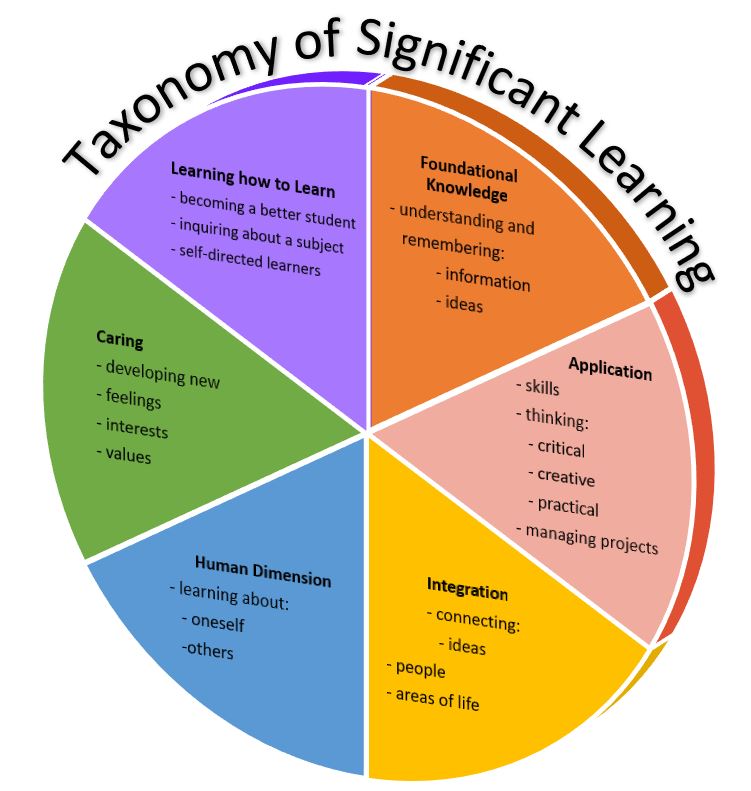8.1 The Concept of Interdisciplinarity
The first stage of interdisciplinarity is to provide a working definition. Interdisciplinarity is when multiple academic disciplines are consolidated into one idea, objective, or task. Authors like Lisa Lattuca point out that interdisciplinarity is the natural ability to make knowledgeable connections in learning[2]. Julie Thompson Klein further notes that interdisciplinarity is the connection of ideas that develops answers to complex questions[3]. Some students, throughout their educational career, may have taken part in interdisciplinary programs within their high school, college, or university. In the diagram below, Fink describes a concept for interdisciplinarity by providing a taxonomy of significant learning[4].

Figure 1: Taxonomy of Significant Learning. In Fink, L. D. (2003). What is ‘significant learning’? In Creating Significant Learning. Josey Bass, p. 3
Interdisciplinarity can be implemented in higher education. Lattuca, Voight, and Fath state in this setting, it may:
- Make connections to previous knowledge
- Help students develop complex understandings of problems
- Develop advanced views of knowledge
- Utilize a multitude of perspectives[5]
In conjunction with Fink’s Taxonomy, these multiple perspectives lead to authentic learning, especially in a post-secondary setting. For example, a lawyer or a judge needs to be conscious of the many different domains involved in a case, such as developing a comprehensive understanding of every facet of the situation. Educators also need to focus on these macro ideas to expand their understanding of how teaching can be effective through the application of various cognitive and social-human dimensions.
This ultimately leads to the role of interdisciplinarity as a catalyst for a consciousness of the ethically-centered greater good. Ethical interdisciplinarity is the process of ensuring that knowledgeable connections meet the needs of the greater good on a large scale. This topic warrants further study, given its broad scope.

